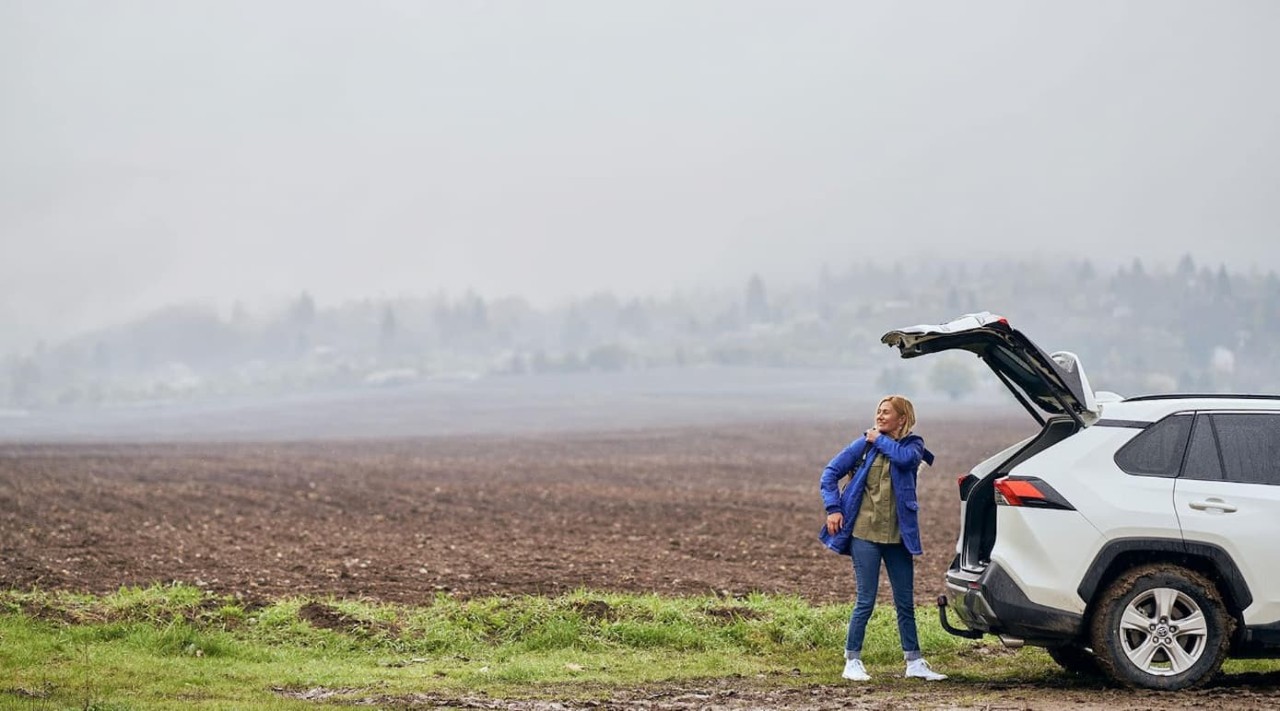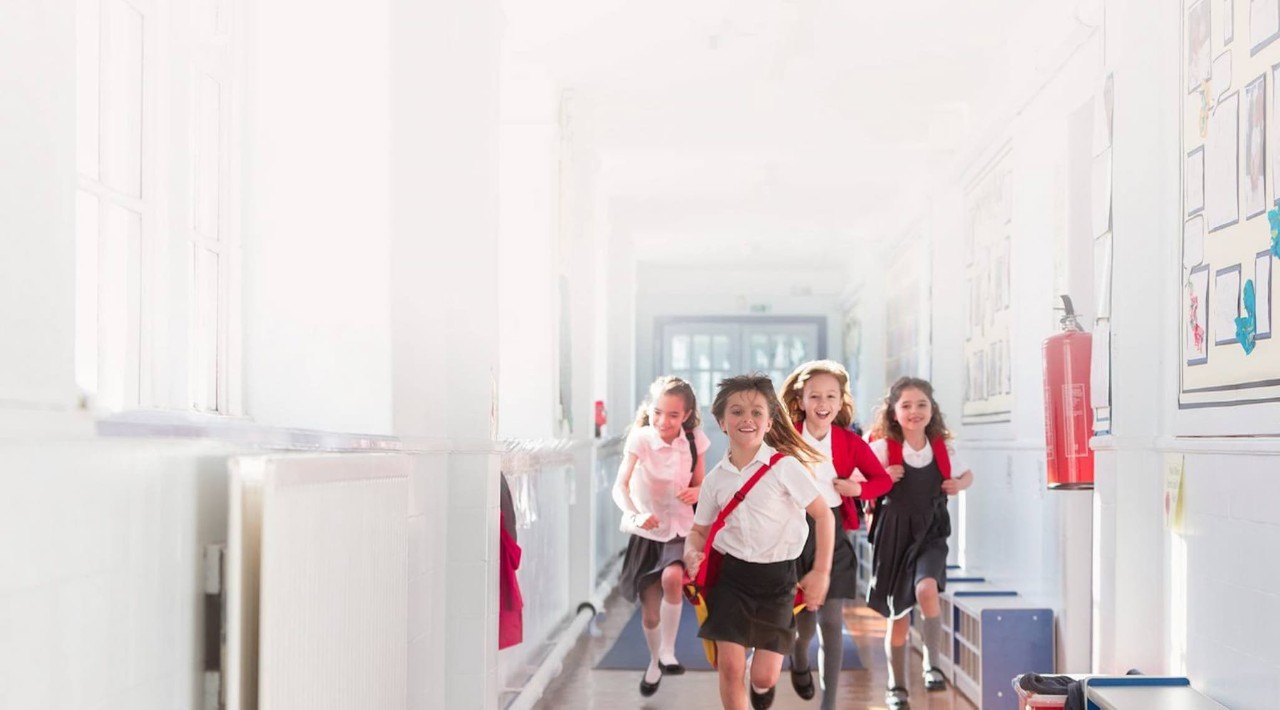By Richel Long, November 2022
A very worrying and serious situation developed in a secondary school which ultimately had a good ending. However the real life experience really shows the importance of being prepared. This incident is outlined by Richel Long, principal of Christ King Girls Secondary School. With many defibrillators located in school properties throughout the country, there are some very noteworthy lessons to be learned.
Thursday January 20th 2022. In the normal run of events that date is probably as mundane a date as you can get in every schools calendar. About two weeks back after Christmas, the decorations are neatly packed away for another year, grey skies overhead with little hope of turning to blue by the time school would finish, a commute to and from school in relative darkness. All the students know but find it hard to accept that the serious work needs to continue with the return of exams. They are happy to let the day drift by and promise themselves the work will start next week. January 20th 2022, nothing remarkable really, except this one would be very different, and it didn’t take long at all to change with a knock on my door.
As the day kicked off in Irish class, the teacher called the roll as is done in every school, every morning. The thud of a child defensively hitting the flooring after confirming her presence is not something anyone wants to hear. But in these scenarios one has to react. In these scenarios the competency of a school, or any entity, is put to the ultimate stress test. If you pass the test then someone has a chance to survive, if you don’t, and it’s very hard to bring yourself to imagine that, but if you don’t it really is life or death.
Our teacher quickly reacted to go to the aid of our fallen pupil and instantly beckoned classmates to get a colleagues assistance due to the obvious serious nature of the situation. This wasn’t a faint. The class teacher quickly removed the pupils face mask and put her in the recovery position, while the second teacher dialled 999. Two further pupils were sent to summon the deputy principal and myself. The 999 operator calmly guided the teacher through CPR, while all the students were removed in advance of CPR being administered. Knowledge and information is key and so the 999 operator needed to know of any underlying health condition of the student. Due to our administration system we were quickly able to confirm that the pupil had no underlying conditions that we were aware of. We contacted the parents to immediately advise them of the serious situation and also to re-confirm their child had no underlying conditions that they were aware of.
As the operator continued to coach the teacher through CPR it became obvious the pupil was turning blue. The operator immediately asked if we had a defibrillator on site and in working order. The deputy principal retrieved the machine, and I confirmed to the operator that it had been serviced the previous month. If it had not been serviced within the required time or had all the correct pieces then we may not have been able to use it. The operator then talked me through the necessary steps in applying the pads to the chest.
When no heartbeat was detected, I was instructed to administer a shock. And with that, the pupil took her first gasp of air since collapsing. Almost six minutes had passed. Luckily, being an urban school the paramedics arrived just at this time and were met at the entrance by two staff members so not to lose any time, as per our school emergency protocols. As the paramedics took over I contacted the parents again to keep them informed and to arrange to meet them at the hospital. The paramedics continued to work with our pupil to stabilise her before transferring her to hospital.
In my absence, our deputy then took control of the school and commenced the critical incident policy. The classmates of the pupil had just witnessed their friend collapse in what was a very obvious serious medical situation. They were brought to the library and cared for by the year head and guidance counsellor. Likewise the teachers involved had also experienced a very traumatic situation and were brought to a quiet place and cared for by the school, outlining the various supports available.
Our pupil was now in the care of the hospital and its team of cardiologists. In truth I expected that to be the end of our real involvement however there was some added complications. Modern defibrillators contain a data card that records various pre and post shock information. This information can be very important to the team of cardiologists to understand the situation from a medical perspective. When they requested this, I expected that I would simply take the card and hand it over to them.
However when our deputy attempted to access the data card it became evident that it wasn’t as straightforward. Due to the particular brand of defibrillator we had when we contacted the manufacturer we were informed that the data could only be read in the USA. The timeline alone to get the physical card sent to the USA, and then analysed, was not practical along with the risk of the card being damaged or even lost in transport. The manufacturer then advised that we might be able to use a company based in Dublin, but once again the time delay along with the transport risk was not ideal.
Eventually one of the attending paramedics was aware of a Cork company that could assist. The Gardai that attended the school as a result of the 999 call, took the device and it was successfully read and the information passed to the hospital.
Thankfully our pupil is still on the road to recovery and returned to school on a phased basis with a specific care plan in place in light of the events. Plans and policies are great and they definitely helped us as a school to deal with the situation as it developed. However, there is nothing like a real life experience to put these plans and policies to the test. We have definitely learned so much from it for all our school policies.
Richel Long
Principal Christ King Girls Secondary School
What can your School learn from this experience:
We all see defibrillators located around the country, and in most cases they are located on the wall of a church, community centre or school. Somewhere generally very accessible by the public that has electrical power. In a lot of cases, it is a community group that have taken it upon themselves to get the equipment in place and the school oblige in allowing it to be installed on your boundary wall or premises. In other cases it is the school that have sourced the equipment.
Where the school have installed the equipment and are responsible for it then the school;
1. must ensure that it is maintained and serviced as required
2. must ensure it is accessible at all times during school activities. If the equipment is installed internally, ensure that the area housing the equipment is accessible
3. must ensure the unit itself is accessible – are there keys or a code, how is that sourced at the time of emergency?
4. should review the process for accessing the data card (consider replacing the unit if not satisfied with the requirements)
5. should consider the training requirements of staff on an ongoing basis
Following the above incident Richel Long took it upon the school to review the incident as a whole and see was there any learnings and improvements that could be made. The fact that the unit was regularly serviced in line with the guidelines was absolutely essential. The importance of this cannot be overstated. The issues discovered regarding accessing the data was also reviewed and is being addressed with replacement units being sought.
The school reviewed the locations of their units to reduce the time it would take a responder to retrieve the equipment from any location in the school. Training staff on the use of the equipment and on the procedures when an incident occurs is vital and this should be reviewed on a continuous basis.
Where a community group have taken it upon themselves to install the equipment on the school premises/wall (with the schools permission), it is really important that the school and the group set out an agreement that clearly outlines the responsibilities of both parties. It is really important that the school do not end up taking on the responsibilities of the group. This can tend to happen over a period of time, so the school should engage, at least yearly, with the group to review and update the agreement.
The School should continue to ensure it is accessible at all times (be conscious not to lock all gates). You should also make it very clear to the group that the Schools insurance will not cover a third parties liability i.e. if the community group failed to have it serviced and as a result it caused injury or didn’t work as it should that would be the groups liability.
We would like to take this opportunity to thank Richel for taking the time to tell her story here. We all know only too well that these incidents can happen anywhere, at any time. Highlighting this incident can hopefully help other schools understand what helped Richel and the school on that day, and what problems they encountered. If all schools took some learnings from this story, it might really count when its needed most.
If you have any questions in relation to the above please contact your local Allianz representative or our dedicated School support team on 01 6133966 (Monday to Friday 9am-5pm). Calls may be recorded. If you are insured through an insurance intermediary please contact them for assistance.





